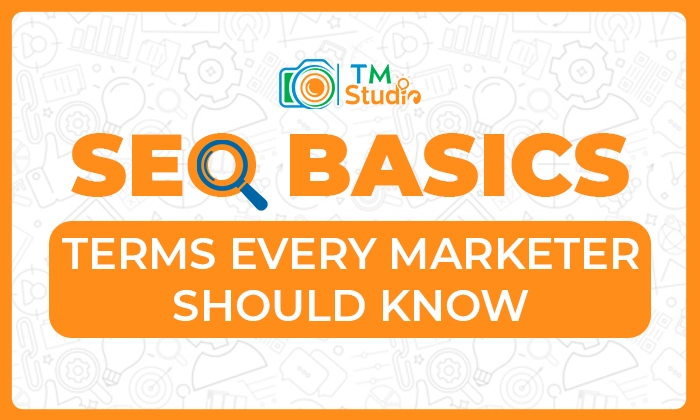The world of digital in Nepal is booming like never before and there is no limit to the possibilities of young professionals. The need of an SEO expert in Nepal has also sky-rocketed because companies are acknowledging the strength of a product being seen online. As a new pass out or a career switcher, there is potential career growth in becoming an SEO expert in Nepal where the market evolves with time. This guide for SEO will take you through the entire process of becoming a professional in digital marketing and will advise you on everything that it takes to become a professional in this competitive sphere of Nepal. 1. SEO Basics Every Future SEO Expert in Nepal Must Know Search Engine Optimization entails the art and science of enhancing the visibility of websites that appear in the search engines. When it comes to companies in Nepal, a good website optimization practice involves reaching those customers that are in the process of searching their products or services. When done right, SEO can turn websites into customer magnets that will lead to a constant increase in website traffic. Here is one practical example: One of the traditional restaurants in Kathmandu used to lack foot traffic, but after following the extended content strategy recommended by an SEO expert in Nepal, they had successful results. They increased the number of daily visitors by twofold in six months through specific content creation and local SEO approaches. SEO consists of different price packages for the brand. When asking Google about the best restaurants in Kathmandu, the company started ranking in the first search engine result page, and it immediately translated online exposure to paying customers, another clear win guided by a seasoned SEO expert in Nepal SEO is important since it provides a level grounded field. Local search optimization and strategic keywords analysis will help small Nepali businesses to compete with large corporations. Knowing how to use Google’s algorithms and make a good optimization of the site usually has better returns than the traditional forms of advertising, including Google Ads. 2. Key SEO Terms to Know for Aspiring SEO Experts in Nepal Knowledge of the industry terms is important in the career progression of a professional. One of the bases of the SEO lies in its solid keyword strategy, the aim is to uncover words and phrases that individuals use to enter the search engine when seeking information, products or services. Proper keyword research entails the identification of words that your potential customers will use and at the same time having a moderate level of competition. Reading backlink analysis, you can see that and where other websites refer to the information you posted. Once the sites with credibility connect to your pages, the search engines take this as a value message, and your search engine rankings may also be improved. Schema markup enables search engines to learn more about about your pages, and this can be provided because of structured data. On-page optimization is the process of finding the important pages on the web to rank high and increase the relevant traffic. These include optimization of content, HTML tags, and structure of internal links. As any SEO expert in Nepal would emphasize, meta descriptions are lines of code that enable search engines to present information regarding the content of your webpages, but they cannot be detected by ordinary viewers of the sites. Website rankings are those positions your web site takes in search engines with certain queries. The higher the ranking the more organic traffic, and greater website visibility of the web site. Such notions are constituents of a successful SEO campaign. 3. How Search Engines Work: Essential Knowledge for SEO Based on sophisticated search engine algorithms, search engines choose which websites are entitled to the first lines of search engine results. The main market of choice in Nepal is Google, which processes the huge amount of search traffic, and thus is the main target of Search engine optimization. The use of frequent site gathering practices to have an idea of how these algorithms work is relevant in developing strategies that make them compliant to the preferences of search engines. There are hundreds of variables that are used to rank a web site by the search engines, such as quality of content, design of the site, speed of loading pages, mobile responsiveness of the site and user engagement measures. It also takes external cues such as backlinks and the mentions in social media marketing into account. The new updates in algorithms have also focused on the user intent, that is; search engines have become more aware of what individuals actually desire when they conduct a query on particular keywords. 4. Building the Right Skill Set for SEO Growth a. Core Skills Needed Effective SEO experts acquire a set of simultaneous skills. The foundations of the keyword research should be laid down but, in reality, the practitioners of the modern era should also be aware about the market trends and the patterns of user behavior. This is associated with the application of different SEO tools, as well as, with the investigation of a search trend in Nepali market. The ability to produce content is essential as well and content marketing for content creation and editorial planning needs to be strategic in approach. The search engines prefer websites that give useful and relevant information to the user. This involves coming up with interesting blog posts, writing convincing product posts and producing materials that address frequently asked questions in your sector. Technical SEO skills can guarantee a well-running site both by the user and the search engine. This is entailed with streamlining site speed, mobile responsiveness, appropriate XML sitemaps, and good internal linking strategies. The skills in developing a website assist you in knowing how various components influence crawling and indexing of the search engines. Link building is aimed at creating trust and authority using off site indicators. This is done by establishing relations with other websites,
SEO Basics: Terms Every Marketer Should Know
Knowing the basics of SEO is a must for any marketer who wants to succeed online these days. Search Engine Optimization is the backbone of online visibility, guiding people straight to the brands they want to find. When marketers grasp key SEO words, they build smarter plans that actually move the needle. Because most web journeys kick off with a search box, that knowledge isn’t just helpful, it’s essential. Whether you’re promoting a local store, working for a software company, or registering .np domains, SEO know-how ensures better choices. Skip it, and you risk losing valuable organic visitors. 1. SEO Basics Explained: What Is Search Engine Optimization? Search engine optimization, or SEO for short, is all about making your website show up higher on Google and other search engines. At the most basic level, it means tweaking things so search bots can read your pages more easily and decide they deserve a good ranking. Getting these SEO fundamentals right really matters for you knowledge. When you make those changes, you’ll usually see more free visitors coming in, people who never even knew your brand was there. Brands that keep those basics in play end up with better leads and more sales than rivals who skip it, and plenty of shops-from neighborhood coding classes to big retailers-have grown fast after adding solid SEO work. Today, businesses that stick with SEO build a kind of advantage that lasts. Whether you’re running a web-hosting site or teaching a weekend workshop, good SEO service keeps bringing traffic long after you stop paying for ads, since its results keep piling up instead of vanishing the minute the budget does. How Search Engines Work: The Foundation of SEO Basics Search engines work by sending automated bots that crawl the web, index pages, and rank them according to relevance and quality. Because of this layered workflow, every marketer who aims to improve visibility online needs a firm grasp of the SEO fundamentals the system relies on. During the crawling phase, those bots leap from link to link, gathering data and building a huge catalogue that serves as the search engines digital library. Once indexing is complete, a ranking algorithm steps in, weighing hundreds of signals to decide which page solves a query best. Given that the biggest engines handle billions of searches each day, companies that master these basic principles suddenly find themselves with an almost limitless stream of potential customers. While secrets will always exist behind the curtain, evaluators consistently look at relevance, domain authority, user experience and technical speed when they review a page. Content that meets accepted SEO standards therefore stands a far better chance of appearing high on the results lists where most clicks occur. 2. Core SEO Terms Every Marketer Should Know No digital-marketing plan really flies without a solid grasp of SEO. The lingo that sits at its heart forms the backbone of everything you do online. Whether you write a blog post, check analytics, or hunt for quality links, knowing these terms helps you act with confidence rather than guesswork. Here are the key ideas every marketer should own. a. Keywords in SEO Basics: What They Are and How to Research Them Keywords are one of the most important elements in the creation of SEO basics strategies that are made up of words and phrases. People use these words to search engines when they want to get information, products, or services. Marketers who want to reach their target audience efficiently have to recognize the importance of keyword research. For example, if a person enters “domain registration in Nepal” in a search box, he has a definite need that is different from general SEO inquiries. The keyword research which is effective includes discovering words that not only have a certain search volume but also a low level of competition and are related to the business. A nice set of keywords can produce the right kind of traffic from the users who really need your product. If it is so, the customers have the intention to make the search in the niche of np domain registration or they search for an SEO expert in Nepal, the knowledge of their behavior will be the base of targeted content strategies. Firstly, when you do keyword research, try to find out which users’ intents are hidden behind different search queries. Some keywords may be typical of informational searches, while others might carry a commercial purpose. The businesses in the local sphere are often the direct beneficiaries of targeting location-specific terms that are related to their immediate market. b. On-Page SEO: Optimizing Content and Site Structure On-page SEO refers to all of the parts on your website which have an impact on the search engine rankings of your site. The components of SEO basics are content quality, title tags, meta descriptions, header structure, URL optimization, and internal linking strategies. Learning the on-page optimization gives you direct control over how search engines understand and rank your pages. Content is undoubtedly the most important on-page factor, and it calls for a clever insertion of keywords without readability or user experience being affected. Therefore, for on-page SEO example, if you are a business offering services of web hosting in Nepal or BIT courses, most effective would be to create informative content that not only addresses customer questions but also incorporates relevant keywords in a natural way. Title tags need to include main keywords naturally while at the same time they should be attractive enough to make users decide to click through from the search result ranking. Header tags (H1, H2, H3) provide a simple text hierarchy that both the users and the search engines understand. The URL also has a big role in on-page SEO optimization basics. Descriptive URLs are those that have relevant keywords in them and they perform better than ones that are non-descriptive. The internal links are good for distributing the page authority across your entire site, as well as helping users find related content



